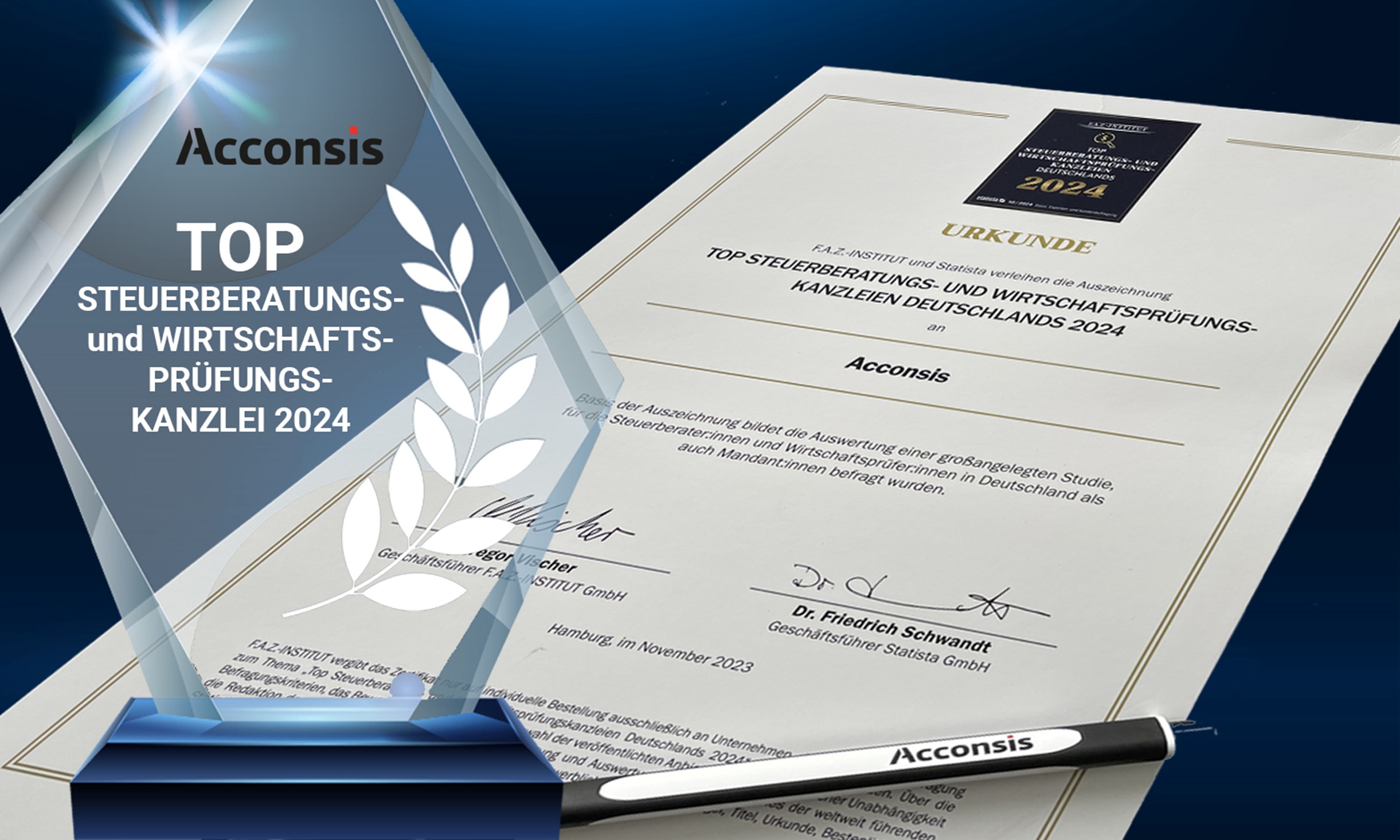The requirements of the tax authorities for electronic cash registers are strict: there is an obligation to use a recording system with a certified technical security device (TSE). Electronic cash registers must also be able to issue a receipt for each business transaction. From January 1, 2025, businesses must now electronically transmit the type and number of their cash registers to the tax office.
Read moreCategory: General
Hamburg tax office declares ENS and TNS airdrops taxable
The Hamburg tax office has decided that airdrops of the Ethereum Name Service (ENS) and the Terra Name Service (TNS) are taxable. However, this opinion has no normative binding effect for other tax authorities. It is at the discretion of each tax authority to take its own tax position. Our article sheds light on the details and implications.
Read moreFederal Labor Court provides clarity: No obligation for employees to reimburse recruitment agency commission!
Employers often use recruitment agencies to recruit staff. A contractual clause that obliges employees to repay the agency commission in the event of premature termination is invalid. Find out more about the details and the ruling of the Federal Labor Court here.
Read moreSustainability in the real estate sector: How to protect your property from loss of value
The European Union (EU) has stipulated that all buildings in the EU must be climate-neutral by 2045, i.e. they must no longer produce any greenhouse gas emissions. The Bavarian Climate Protection Act even stipulates climate neutrality by 2040.
For property owners, this means enormous pressure to take action to renovate their buildings to make them more energy-efficient and to switch to renewable energies.
Read moreSkilled worker immigration 2024: This will also apply from June 01, 2024
The Skilled Immigration Act is intended to counteract the enormous shortage of skilled workers in Germany. Following the first stage in November 2023 and the second stage in March 2024, the third stage will now bring about changes to the immigration of skilled workers for the last time.
Read moreTaxes: Usufruct of a securities account reduces gift tax
When it comes to transferring assets to the next generation, there is always the issue of gift tax. If securities accounts are transferred by way of anticipated succession, a so-called usufructuary account reduces the gift tax for the person receiving the gift.
Read moreFoundation and association part 2: the charitable foundation
If you want to set up a non-profit organization (NPO), sooner or later you will have to think about the right legal form and organization. To found an NPO, you can use the common legal forms from company law (GbR, GmbH, etc.).
It is important to know here: Under certain conditions,
Read moreData protection is not crime protection! No prohibition of exploitation in the case of open video surveillance: A current labor law ruling clarifies!
Even if an employer’s surveillance measure was not carried out in full compliance with the requirements of data protection law, there is generally no prohibition on the use of recordings obtained from open video surveillance in a dismissal protection process. Find out more about the details and legal implications of this judgment in this article.
Read moreNew disclosure requirements for climate targets
The European Union has introduced standards for corporate sustainability reporting, including the European Sustainability Reporting Standard (ESRS) E1. This standard relates to climate protection, climate adaptation and energy.
They oblige companies to report comprehensively. It covers both positive and negative, actual and potential impacts.
Read moreObligation to notify gifts and acquisitions by reason of death
Are you aware that there is a duty of disclosure for gifts and acquisitions by reason of death in accordance with Section 30 of the Inheritance Tax and Gift Tax Act (ErbStG)?
This duty of disclosure is an essential aspect of the tax treatment of inheritances and gifts and must be made within a certain period of time.
Read moreMastering sustainability reporting with ESG technologies
Today, no company can avoid the topic of sustainability. This is due not only to pressure from investors, consumers and employees, but above all to new regulatory requirements such as the Corporate Sustainability Reporting Directive (CSRD), the EU Taxonomy and the Supply Chain Sustainability Act (LkSG). These make non-financial reporting mandatory for many organizations.
Read moreFoundation and association – Part 1: the non-profit association
Anyone thinking about getting involved in society – possibly together with others – must decide at some point what legal form this should take.
If you want to set up a non-profit organization (NPO), you can use the usual legal forms from company law (GbR, GmbH, etc.). However,
Read moreEPBD revision: EU directive drives energy efficiency and sustainability in buildings
The European Union has taken decisive steps to increase energy efficiency in buildings. In March 2024, the EU Parliament voted in favor of the recast of the Energy Performance of Buildings Directive (EPBD). The recast marks a turning point for the real estate sector. The initiative aims to reduce energy consumption and accelerate the transition to renewable energy,
Read moreE-invoicing from 2025: chore or efficiency booster?
With the introduction of mandatory e-invoicing as part of the Growth Opportunities Act passed on 22 March 2024, companies in Germany are facing a significant change. However, instead of a bureaucratic nightmare, this change also offers opportunities for increased efficiency and digital transformation. Companies should therefore not view the implementation of the legal requirements as a chore,
Read moreThe Supply Chain Act brings SMEs into the ESG reporting obligation
The German Supply Chain Act (LkSG), the European Supply Chain Act and the EU Directive on Corporate Sustainability Reporting (CSRD), together with the EU taxonomy, lead to new reporting obligations for companies in Germany and the EU.
They affect small and medium-sized enterprises (SMEs) earlier than the respective size categories of the laws would suggest,
Read moreSale of privately owned real estate
What should you bear in mind for income tax purposes when selling property as a private asset? Unfavorably chosen constellations can also have far-reaching consequences for you in the future.
In principle, the increase in value of real estate is subject to income tax at the individual personal tax rate,
Read moreGermany’s best tax consultants and auditors: ACCONSIS honoured several times
At ACCONSIS, we constantly strive to impress our clients with our in-depth expertise and outstanding advisory services. We are therefore particularly proud that our efforts have been recognised accordingly. In 2024, ACCONSIS is once again one of the consulting firms in Germany that has received multiple awards, with four prestigious seals of approval from manager magazin,
Read moreHow and when should real estate be transferred within the family?
Owning a home often plays a central role in the lives of many families. Whether for their own use or as an investment, their own four walls should also offer their descendants stability and security.
To ensure that this also works in reality, the issue of transferring a property should be addressed at an early stage.
Read moreSkilled Immigration Act 2024: 2nd stage since the beginning of March
Since November 2023, the first adjustments to the right of residence under the Skilled Immigration Act have taken effect. Since the beginning of March 2024, further regulations have been in place to facilitate the immigration of skilled workers in order to counteract the shortage of skilled workers.
In this article,
Read moreTax investigation targets online poker: When the game gets serious.
At the end of 2023, numerous online poker players who had carried out their activities on various platforms received mail from the tax investigation authorities. Some of these players were asked to complete a questionnaire regarding their poker activities. Others were immediately confronted with the opening of criminal proceedings on suspicion of tax evasion.
Read moreFair pay for all? The Pay Transparency Directive will change things for employers
The idea of equal pay for equal work or work of equal value – equal pay – is not new. And yet this demand has only really gained momentum in recent years. However, equal pay naturally requires transparency as to who receives what pay in what function. This is where the EU’s Pay Transparency Directive (EntgTranspRL) comes in.
Read moreFrom landlord to tax evader? These are pitfalls.
Landlords beware: How to avoid unintentional mistakes on your tax return!
This article will give you an insight into how landlords can unintentionally become tax evaders. As the tax regulations in the area of letting are very complex, misunderstandings can easily arise and even well-intentioned actions can lead to serious consequences such as criminal tax proceedings.
Read moreInherited a property in Italy – and now?!
Did your parents or grandparents once fulfill their dream of owning their own property in Italy? Whether it was a vacation apartment on Lake Garda or a house in Tuscany, it is possible that this property will be included in the estate.
But what do you do with the property then?
Read moreClaiming a compulsory portion – what you should know
Claiming the compulsory portion is often necessary after a disinheritance if heirs do not want to fulfill the compulsory portion claim or want to pay out too small a share of the value of the estate.
But who is entitled to the compulsory portion? Who can sue for the compulsory portion?
Read moreMaternity protection pay: no disadvantage with seasonally fluctuating income
When it comes to maternity protection pay and the amount of maternity protection pay under the Maternity Protection Act (MuSchG), the last three months before the start of a pregnancy are relevant for the calculation. This is not a problem for women with a fixed monthly income or a low proportion of variable remuneration.
Read moreStricter documentation requirements for transfer prices
Transfer prices, also known as transfer pricing, are an essential element of international tax planning and compliance for companies that conduct cross-border business. Transfer pricing refers to the prices charged between affiliated companies – for example, a German company headquarters and its foreign subsidiaries or branches – for goods, services,
Read morePseudo self-employment: When are “freelancers” employees after all?
Bogus self-employment is a recurring issue for companies that employ freelancers and for freelancers themselves. And yet both sides tend to bury their heads in the sand when it comes to this issue and hope that everything will work out. However, it would be better to address this problem proactively and find solutions.
Read moreContesting a will: What you need to know and bear in mind
Wills are always a cause of dispute and anger among relatives of a deceased person. And it is not uncommon for relatives to want to contest a will. The motives for contesting a will are then very different.
However, it is not always possible and/or sensible for a relative to contest a will.
Read moreACCONSIS honoured as “TOP tax consulting and auditing firm 2024”
The F.A.Z.-INSITUT and the renowned market research company statista rank ACCONSIS among the best tax consultants and auditors in 2024.
This award is based on a survey conducted in summer 2023, to which around 15,000 experts from tax consulting and auditing firms as well as business and corporate clients were invited.
Read moreTax-free kindergarten allowance for employees
Employers have the option of paying their employees tax-free allowances in addition to their salary for the care of their non-school-age children in kindergartens or similar facilities.
Read the following article to find out which facilities are eligible and which regulations and requirements apply.
Read moreTax evasion & voluntary disclosure – what you should know!
Many people associate the topic of tax evasion with celebrities who “end up” in prison for a certain period of time with a lot of hype in the tabloids. We remember, for example, soccer managers, ex-professional tennis players or star chefs who were tried for tax evasion, sentenced to prison and had to spend some time in jail.
Read moreFunding opportunities 2023: The innovations for energy-efficient construction and renovation for property owners at a glance
In 2023, homeowners and prospective property owners in Germany will have a wide range of opportunities to take advantage of financial incentives for energy-efficient construction and renovation. Families in particular will benefit from new KfW programs offering low-interest loans and extended credit terms. These support measures are part of a comprehensive strategy to promote sustainable real estate projects and environmental protection.
Read moreTermination without notice due to chat comments: Current labor law ruling creates clarity!
Focus on the BAG ruling from August 24, 2023
In a recent employment law case, an employee was terminated without notice after insulting, racist, sexist and violence-glorifying remarks surfaced in a chat group with colleagues. The members of the group were long-time friends and colleagues, but the employer learned of the remarks and terminated the employee.
Read moreThe energy renovation of the home
When modernizing a home or changing ownership, the question arises as to what subsidy options or tax benefits are available and how they can be claimed.
Would you like to get an overview of the BEG individual measures grant, tax simplification for photovoltaic systems and new regulations for sales tax?
Read moreSustainability and ESG Strategy: Important success factors for the business handover
Due to demographic change, the topic of company succession is becoming increasingly explosive, especially in medium-sized businesses. It requires careful preparation and poses numerous challenges for both the transferor and the transferee. Moreover, a takeover process can extend over several years if legal and tax aspects are to be used optimally.
Read moreTax calculation of partial monthly amounts
An employee of your company starts or ends his employment during the current month? If so, this has wage tax implications that need to be taken into account.
In the following article, you will learn when exactly a partial wage payment period arises and what must be taken into account for wage tax purposes.
Read moreCriminal tax proceedings against crypto trader: tax office has first data available
The tax office has gained access to crypto trades – a wake-up call for all crypto traders.
- Is there now a threat of a wave of criminal tax proceedings against crypto traders?
- How do I react when the tax authorities inquire?
- What should I do if I am included on the record available to the tax office and the tax office writes to me?
Workation revolution: working abroad as an unbeatable benefit!
How to inspire top talents with flexible working models and keep legal and tax aspects in focus.
In today’s working world, flexibility is becoming increasingly important, both for employers and employees. One innovative option that has emerged in recent years is workation.
Workation combines work and leisure by allowing employees to work in an attractive location abroad.
Read moreBitcoin as a commodity: Will alternative coins be classified as securities in the US?
A new wind is blowing through the crypto world, as discussions are underway in the U.S. about whether Alternative Coins (Altcoins) should be classified as securities. This potential change raises questions:
- What does this mean for fun cryptocurrencies like Dogecoin and Shiba Inu? What about established giants like Bitcoin and Ethereum?
Flat-rate payroll tax according to §37b EStG for benefits in kind
The lump-sum wage taxation according to §37b EStG offers employers the possibility to tax certain benefits in kind to employees with a uniform tax rate of 30%.
There is a choice between taxing the benefits in kind at the employee’s individual tax rate or lump-sum taxation, in which the employer bears the amount of payroll tax alone.
Read moreWhistleblower Protection Act & Protection against Dismissal: How the law protects whistleblowers
The Whistleblower Protection Act (HinSchG) is currently on everyone’s lips – after all, the legislator has managed to transpose the EU Whistleblower Directive into federal law: the Whistleblower Protection Act will come into force on July 2, 2023.
The main focus of discussion is the obligation, from a compliance point of view,
Read moreEmployment of full pensioners: what employers should know!
Employing full pensioners is a good way for employers to fill staffing gaps in times of a shortage of skilled workers and general staff shortages. In particular, the use of full pensioners is relatively uncomplicated for employers: in many respects it is no different from the use of non-pensioners, and in some cases there are even advantages.
Read moreImportant changes in foundation law as of July 2023
From July 1, 2023, the Act on the Unification of Foundation Law will come into force, bringing together, supplementing and clarifying many previously unclear, contradictory or incomplete points in foundation law. In addition to new, uniform federal regulations, the reform also includes the introduction of a central foundation register. The changes are intended to provide greater legal certainty in matters of liability,
Read moreReal estate sale & divorce: sale of co-ownership share within holding period may be taxable
Often, a property must be sold in its entirety as part of a divorce, or one ex-spouse sells his or her co-ownership share to the other ex-spouse. The problem: if a property is sold as private assets within the so-called holding period, taxes may have to be paid on it because it may be a private sale transaction.
Read moreTax-privileged fringe benefits: How companies can score points in the battle for satisfied employees
Everyone is talking about a shortage of skilled workers – but what can companies do to retain good employees in the long term? In addition to a good working atmosphere, performance-related pay is of course a very important factor. However, more than half of every euro of a salary increase often goes to taxes and social security contributions.
Read moreWorking time recording & trust-based working time: will it still work in the future?
At the end of 2022, the German Federal Labor Court (Bundesarbeitsgericht – BAG) issued a landmark ruling stating that recording working hours is no longer a “can” but a “must”. Employers must – even now! – record the working hours of their employees. For new-work models based on trust-based working time,
Read moreTax benefits for the operation of photovoltaic systems
The use of renewable energies is becoming increasingly important. To promote the expansion of photovoltaic systems, the legislature has now introduced extensive changes for operators of photovoltaic systems as part of the Annual Tax Act 2022.
Numerous bureaucratic hurdles will be removed. The new regulations will make the operation of photovoltaic systems more attractive and simpler from a tax perspective.
Read moreBitcoin & Co: BFH rules crypto profits are taxable! What do crypto investors need to know now?
With the decision of the Federal Fiscal Court (Bundesfinanzhof, BFH) of February 28, 2023, the highest German fiscal court has now for the first time taken a position on income tax issues relating to crypto assets – Bitcoins and Co.
In it, the previously issued fiscal court decisions are followed and also essential excerpts of the BMF letter of May 10,
Read moreChild benefit evaded? Criminal charges for tax evasion can be the consequence!
Under certain conditions, parents in Germany are entitled to child benefit. As of January 1, 2023, the entitlement to child benefit is a uniform 250 euros per month and child and is paid out to parents by the family benefits office. So far, so good.
But if the family benefits office pays out child benefits even though parents are not (or no longer) entitled to them,
Read moreReal estate valuation newly regulated – higher inheritance tax and gift tax for real estate since 01.01.2023
Real estate valuation in the event of a gift or inheritance has always been a bone of contention. Now, the legislator has reformed the Valuation Act – and with significant effects on the calculation of inheritance tax and gift tax in connection with real estate. This is because the value of real estate has been determined on the basis of the market value for the calculation of gift and inheritance tax since the changes to the law on 01.01.2009.
Read more

















































